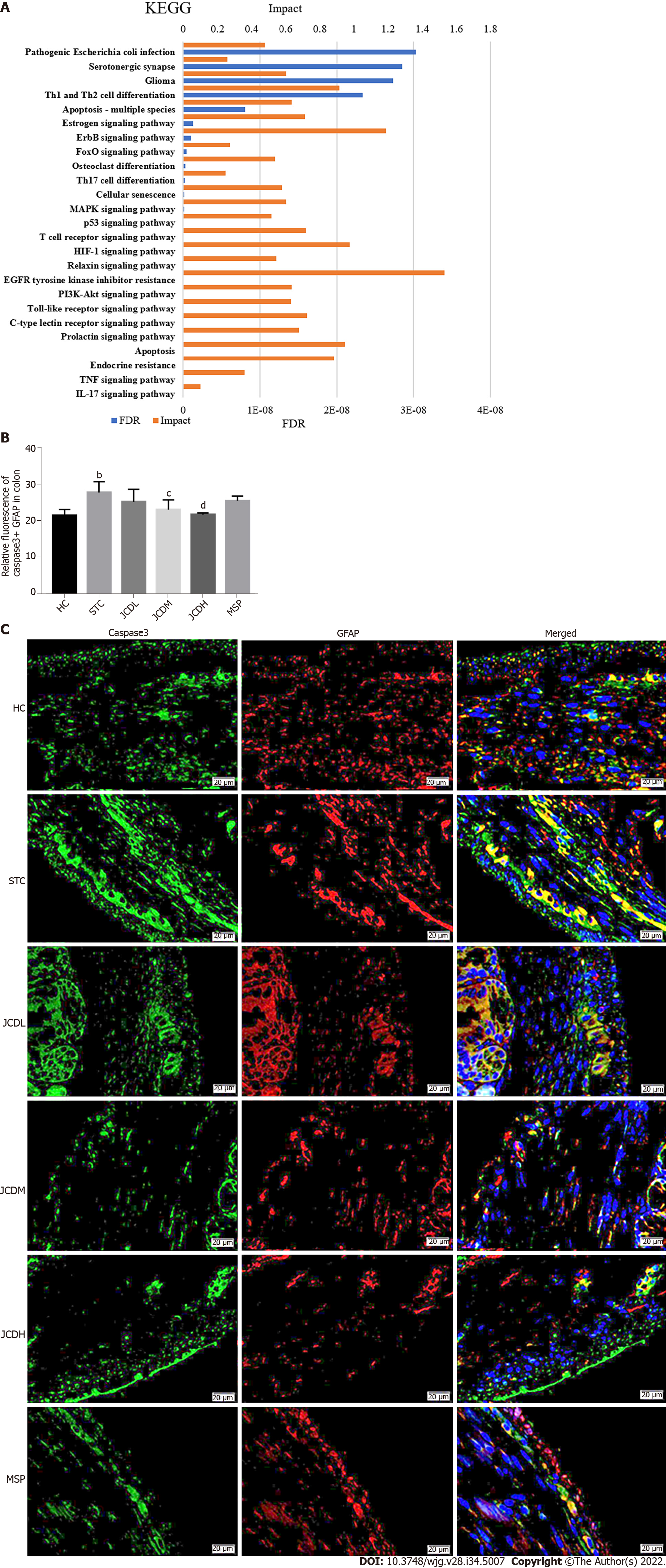Copyright
©The Author(s) 2022.
World J Gastroenterol. Sep 14, 2022; 28(34): 5007-5022
Published online Sep 14, 2022. doi: 10.3748/wjg.v28.i34.5007
Published online Sep 14, 2022. doi: 10.3748/wjg.v28.i34.5007
Figure 5 Integrative analysis and experimental validation of improved network pharmacology and metabolites.
A: Integration analysis between the modified network pharmacology and metabolites. The ordinate stands for pathways, the primary abscissa stands for minus false discovery rates, and the secondary abscissa stands for impact; B and C: The relative expression of Caspase3+ Glial fibrillary acidic protein was assessed by immunofluorescent staining. GFAP: Glial fibrillary acidic protein; HC: Healthy control; STC: Slow transit constipation; JCD: Ji-Chuan decoction; JCDL: Low-dose Ji-Chuan decoction treatment; JCDM: Middle-dose Ji-Chuan decoction treatment; JCDH: High-dose Ji-Chuan decoction treatment; MSP: Mosapride treatment; FDR: False discovery rates; KEGG: Kyoto Encyclopedia of Genes and Genomes; Th: Thyroid hormone; EGFR: Epidermal growth factor receptor; MAPK: Mitogen-activated protein kinase; IL: Interleukin; TNF: Tumor necrosis factor; HIF: Hypoxia-inducible factor. Data are expressed as the mean ± SD. Compared with the healthy control group: aP < 0.05, bP < 0.01. Compared with the slow transit constipation group: cP < 0.05, dP < 0.01.
- Citation: Wang XM, Lv LX, Qin YS, Zhang YZ, Yang N, Wu S, Xia XW, Yang H, Xu H, Liu Y, Ding WJ. Ji-Chuan decoction ameliorates slow transit constipation via regulation of intestinal glial cell apoptosis. World J Gastroenterol 2022; 28(34): 5007-5022
- URL: https://www.wjgnet.com/1007-9327/full/v28/i34/5007.htm
- DOI: https://dx.doi.org/10.3748/wjg.v28.i34.5007









